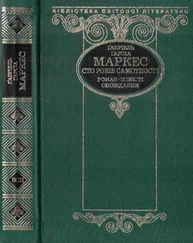“No, although we’ll have a talk about that later,” he said, leaving Noemí confused.
She had been slow dancing when a servant had tapped her on the shoulder and asked if she’d take a call from Mr. Taboada in the studio, disrupting her entire evening. She had assumed Father had found out she was out with Hugo and meant to rip him from her arms and deliver an admonishment. If that was not his intent, then what was all the fuss about?
“It’s nothing bad, is it?” she asked, her tone changing. When she was cross, her voice was higher-pitched, more girlish, rather than the modulated tone she had in recent years perfected.
“I don’t know. You can’t repeat what I’m about to tell you. Not to your mother, not to your brother, not to any friends, understood?” her father said, staring at her until Noemí nodded.
He leaned back in his chair, pressing his hands together in front of his face, and nodded back.
“A few weeks ago I received a letter from your cousin Catalina. In it she made wild statements about her husband. I wrote to Virgil in an attempt to get to the root of the matter.
“Virgil wrote to say that Catalina had been behaving in odd and distressing ways, but he believed she was improving. We wrote back and forth, me insisting that if Catalina was indeed as distressed as she seemed to be, it might be best to bring her to Mexico City to speak to a professional. He countered that it was not necessary.”
Noemí took off her other glove and set it on her lap.
“We were at an impasse. I did not think he would budge, but tonight I received a telegram. Here, you can read it.”
Her father grabbed the slip of paper on his desk and handed it to Noemí. It was an invitation for her to visit Catalina. The train didn’t run every day through their town, but it did run on Mondays, and a driver would be sent to the station at a certain time to pick her up.
“I want you to go, Noemí. Virgil says she’s been asking for you. Besides, I think this is a matter that may be best handled by a woman. It might turn out that this is nothing but exaggerations and marital trouble. It’s not as if your cousin hasn’t had a tendency toward the melodramatic. It might be a ploy for attention.”
“In that case, why would Catalina’s marital troubles or her melodrama concern us?” she asked, though she didn’t think it was fair that her father label Catalina as melodramatic. She’d lost both of her parents at a young age. One could expect a certain amount of turmoil after that.
“Catalina’s letter was very odd. She claimed her husband was poisoning her, she wrote that she’d had visions. I am not saying I am a medical expert, but it was enough to get me asking about good psychiatrists around town.”
“Do you have the letter?”
“Yes, here it is.”
Noemí had a hard time reading the words, much less making sense of the sentences. The handwriting seemed unsteady, sloppy.
…he is trying to poison me. This house is sick with rot, stinks of decay, brims with every single evil and cruel sentiment. I have tried to hold on to my wits, to keep this foulness away but I cannot and I find myself losing track of time and thoughts. Please. Please. They are cruel and unkind and they will not let me go. I bar my door but still they come, they whisper at nights and I am so afraid of these restless dead, these ghosts, fleshless things. The snake eating its tail, the foul ground beneath our feet, the false faces and false tongues, the web upon which the spider walks making the strings vibrate. I am Catalina Catalina Taboada. CATALINA. Cata, Cata come out to play. I miss Noemí. I pray I’ll see you again. You must come for me, Noemí. You have to save me. I cannot save myself as much as I wish to, I am bound, threads like iron through my mind and my skin and it’s there. In the walls. It does not release its hold on me so I must ask you to spring me free, cut it from me, stop them now. For God’s sake…
Hurry,
Catalina
In the margins of the letter her cousin had scribbled more words, numbers, she’d drawn circles. It was disconcerting.
When was the last time Noemí had spoken to Catalina? It must have been months ago, maybe close to a year. The couple had honeymooned in Pachuca, and Catalina had phoned and sent her a couple of postcards, but after that there had been little else, although telegrams had still arrived wishing happy birthdays to the members of the family at the appropriate times of the year. There must have also been a Christmas letter, because there had been Christmas presents. Or was it Virgil who had written the Christmas letter? It had, in any case, been a bland missive.
They’d all assumed Catalina was enjoying her time as a newlywed and didn’t have the inclination to write much. There had also been something about her new home lacking a phone, not exactly unusual in the countryside, and Catalina didn’t like to write anyway. Noemí, busy with her social obligations and with school, simply assumed Catalina and her husband would eventually travel to Mexico City for a visit.
The letter she was holding was therefore uncharacteristic in every way she could think of. It was handwritten, though Catalina preferred the typewriter; it was rambling, when Catalina was succinct on paper.
“It is very odd,” Noemí admitted. She had been primed to declare her father was exaggerating or using this incident as a handy excuse to distract her from Duarte, but that didn’t seem to be the case.
“To say the least. Looking at it, you can probably see why I wrote back to Virgil and asked him to explain himself. And why I was so taken aback when he immediately accused me of being a nuisance.”
“What exactly did you write to him?” she asked, fearing her father had seemed uncivil. He was a serious man and could rub people the wrong way with his unintended brusqueness.
“You must understand I would take no pleasure in putting a niece of mine in a place like La Castañeda—”
“Is that what you said? That you’d take her to the asylum?”
“I mentioned it as a possibility,” her father replied, holding out his hand. Noemí returned the letter to him. “It’s not the only place, but I know people there. She might need professional care, care that she will not find in the countryside. And I fear we are the ones capable of ensuring her best interests are served.”
“You don’t trust Virgil.”
Her father let out a dry chuckle. “Your cousin married quickly, Noemí, and, one might say, thoughtlessly. Now, I’ll be the first to admit Virgil Doyle seemed charming, but who knows if he is reliable.”
He had a point. Catalina’s engagement had been almost scandalously short, and they’d had scant chance to speak to the groom. Noemí wasn’t even sure how the couple met, only that within a few weeks Catalina was issuing wedding invitations. Up until that point Noemí hadn’t even known her cousin had a sweetheart. If she hadn’t been invited to serve as one of the witnesses before the civil judge, Noemí doubted she’d have known Catalina had married at all.
Such secrecy and haste did not go down well with Noemí’s father. He had thrown a wedding breakfast for the couple, but Noemí knew he was offended by Catalina’s behavior. That was another reason why Noemí hadn’t been concerned about Catalina’s scant communication with the family. Their relationship was, for the moment, chilly. She’d assumed it would thaw in a few months, that come November Catalina might arrive in Mexico City with plans for Christmas shopping and everyone would be merry. Time, it was merely a question of time.
“You must believe she is saying the truth and he is mistreating her,” she concluded, trying to remember her impression of the groom. Handsome and polite were the two words that came to mind, but then they’d hardly exchanged more than a few sentences.
Читать дальше





![Сильвия Морено-Гарсия - Боги нефрита и тени [litres]](/books/431579/silviya-moreno-garsiya-bogi-nefrita-i-teni-litres-thumb.webp)
![Сильвия Морено-Гарсия - Мексиканская готика [litres]](/books/431998/silviya-moreno-garsiya-meksikanskaya-gotika-litres-thumb.webp)





